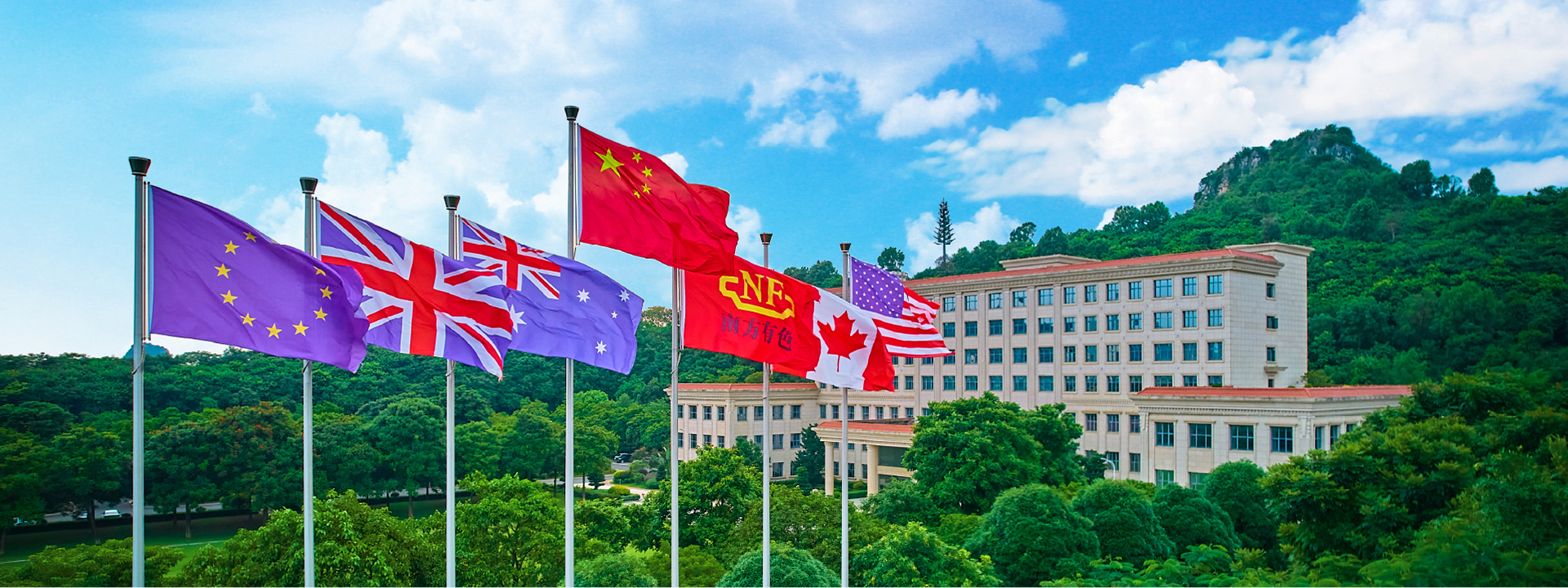Supply Chain Due Diligence Policy
Our company recognized the risks of significant adverse impacts which may be associated with extracting, trading, processing, and exporting minerals from conflict-affected and high-risk areas, and that we have the responsibility to respect human rights and not contribute to conflict, we commit to adopt and widely disseminate the policy of Chinese Due Diligence Guidelines for Responsible Mineral Supply Chains and OECD Due Diligence Guidance for Responsible Supply Chains of Minerals from Conflict-Affected and High-Risk Areas and Cobalt Refiner Supply Chain Due Diligence Standard, and incorporate the policy in contracts and/or agreements with suppliers.
This policy provides a common reference for conflict-sensitive sourcing practices and suppliers’ risk awareness from the point of extraction until the end user. We commit not to get involved in any activities which contribute to the financing of conflict and we commit to comply with relevant United Nations sanctions resolutions.
We are committed to identifying and managing the following risks in the supply chain:
I. Regarding serious abuses associated with the extraction, transport or trade of minerals:
While sourcing from, or operating in, conflict-affected and high-risk areas, we will neither tolerate nor by any means profit from, contribute to, assist with or facilitate the commission by any party of:
{C}a. {C}any forms of torture, cruel, inhuman and degrading treatment;
{C}b. {C}any forms of forced or compulsory labour, which means work or service which is exacted from any person under the menace of penalty and for which said person has not offered himself voluntarily;
{C}c. {C}the worst forms of child labour;
{C}d. {C}other gross human rights violations and abuses such as widespread sexual violence;
{C}e. {C}war crimes or other serious violations of international humanitarian law, crimes against humanity or genocide.
Risk mitigation measures:
We will immediately suspend or discontinue engagement with upstream suppliers where we identify a reasonable risk that they are sourcing from, or linked to, any party committing serious abuses as defined above.
II. Regarding direct or indirect support to non-state armed groups:
We will not tolerate any direct or indirect support to non-state armed groups through the extraction, transport, trade, handling or export of minerals. “Direct or indirect support” to non-state armed groups through the extraction, transport, trade, handling or export of minerals includes, but is not limited to, procuring minerals from, making payments to or otherwise providing logistical assistance or equipment to, non-state armed groups or their affiliates who:
{C}i. {C}illegally control mine sites or otherwise control transportation routes, points where minerals are traded and upstream actors in the supply chain; and/or
{C}ii. {C}illegally tax or extort money or minerals at points of access to mine sites, along transportation routes or at points where mineral are traded; and/or
{C}iii. {C}illegally tax or extort intermediaries, export companies or internal trader.
Risk mitigation measures:
We will immediately suspend or discontinue engagement with upstream suppliers where we identify a reasonable risk that they are sourcing from, or linked to, any party providing direct or indirect support to non-state armed groups.
III. Regarding public or private security forces:
We disagree to provide direct or indirect support to public or private security forces who illegally control mine sites, transportation routes and upstream actors in the supply chain; illegally tax or extort money or minerals at point of access to mine sites, along transportation routes or at points where minerals are traded; or illegally tax or extort intermediaries, export companies or international traders.
We recognise that the role of public or private security forces at the mine sites and/or surrounding areas and/or along transportation routes should be solely to maintain the rule of law, including safeguarding human rights, providing security to mine workers, equipment and facilities, and protecting the mine site or transportation routes from interference with legitimate extraction and trade.
Where we or any company in our supply chain contract public or private security forces, we commit to or we will require that such security forces will be engaged in accordance with the international widely recognized standards. In particular, we will support or take steps, to adopt screening policies to ensure that individuals or units of security forces that are known to have been responsible for gross human rights abuses will not be hired.
We will support efforts, or take steps, to engage with central or local authorities, international organisations and civil society organisations to contribute to workable solutions on how transparency, proportionality and accountability in payments made to public security forces for the provision of security could be improved.
We will support efforts, or take steps, to engage with local authorities, international organisations and civil society organisations to avoid or minimise the exposure of vulnerable groups, in particular, artisanal miners where minerals in the supply chain are extracted through artisanal or small-scale mining, to adverse impacts associated with the presence of security forces, public or private, on mine sites.
Risk mitigation measures:
In accordance with the specific position of the company in the supply chain, we will immediately devise, adopt and implement a risk management plan with upstream suppliers and other stakeholders to prevent or mitigate the risk of direct or indirect support to public or private security forces, where we identify that such a reasonable risk exists. In such cases, we will suspend or discontinue engagement with upstream suppliers after failed attempts at mitigation within six months from the adoption of the risk management plan.
IV. Regarding bribery and fraudulent misrepresentation of the origin of minerals:
We will not offer, promise, give or demand any bribes, and will resist the solicitation of bribes to conceal or disguise the origin of minerals, to misrepresent taxes, fees and royalties paid to governments for the purposes of mineral extraction, trade, handling, transport and export.
Regarding money laundering:
We will support efforts, or take steps, to contribute to the effective elimination of money laundering where we identify a reasonable risk of money-laundering resulting from, or connected to, the extraction, trade, handling, transport or export of minerals derived from the illegal taxation or extortion of minerals at points of access to mine sites, along transportation routes or at points where minerals are traded by upstream suppliers.
Regarding the payment of taxes, fees and royalties due to governments:
We will ensure that all taxes, fees, and royalties related to mineral extraction, trade and export from conflict-affected and high-risk areas are paid to governments and, in accordance with the company’s position in the supply chain, we commit to disclose such payments in accordance with the requirements of host country on the disclosure of tax information paid to government departments.
Risk mitigation measures:
In accordance with the specific position of the company in the supply chain, we commit to engage with suppliers, central or local governmental authorities, international organisations, civil society and affected third parties, as appropriate, to improve and track performance with a view to preventing or mitigating risks of adverse impacts through measureable steps taken in reasonable timescales. We will suspend or discontinue engagement with upstream suppliers after failed attempts at mitigation. Companies should conduct an additional risk assessment on those risks requiring mitigation after the adoption of the risk management plan. If within six months from the adoption of the risk management plan there is no significant measurable improvement to prevent or mitigate the risks of bribery and fraudulent misrepresentation of the origin of minerals, money-laundering and payment of taxes, fees and royalties to governments, companies should suspend or discontinue engagement with the supplier for a minimum of three months. Suspension may be accompanied by a revised risk management plan, stating the performance objectives for progressive improvement that should be met before resuming the trade relationship.
Our company is committed to continuous improvement, and we have integrated this principle into our overall management system and the responsibilities of all relevant departments. We regularly review and update our policy to reflect changes in our operations, supply chain, and other business relationships. This policy applies to all our suppliers as well, and we will take active measures to ensure that they are aware of and adhere to this policy. The policy will come into effect immediately and will be published publicly.
Supply Chain Due Diligence Grievance Mechanism
Our company have developed this grievance mechanism based on its Supply Chain Due Diligence Policy to promptly identify and address possible risks contributing to conflict or human rights abuses in their supply chain and to ensure smooth communication with internal and external stakeholders. Additionally, Nandan Nanfang participates in the Mediation and Consultation Mechanism for the Mining Industry and Mineral Value Chain of the China Chamber of Commerce for Metals, Minerals & Chemicals Importers & Exporters (CCCMC) to effectively resolve disputes, strengthen communication, coordination, and cooperation among all parties, convey the demands and expectations of all parties, and build a responsible, resilient, and sustainable mineral supply chain.
1. What issues can be accepted?
Grievance that meets the following criteria will be accepted:
1) related to Nandan Nanfang’s supply chain due diligence;
2) business activities or business relationships have caused or may cause negative impacts;
3) business activities or business relationships violate the requirements of The OECD Due Diligence Guidance for Responsible Supply Chains of Minerals from Conflict-Affected and High-Risk Areas, Chinese Due Diligence Guidelines for Minerals Supply Chain, or its Supply Chain Due Diligence Policy.
Grievance will NOT be accepted under any of the following:
1) not related to the Nanko Copper's supply chain due diligence;
2) unable to provide sufficient evidence or witnesses to support the issues;
3) vicious grievance or to gain competitive advantages;
4) if the grievance does not fall within our internal mechanisms' scope, we will actively coordinate with an external organization to resolve it.
2. Who can file a grievance?
Any individual or group, including but not limited to our customers, suppliers, affected community residents, employees, etc., may file a grievance with the compliance team.
Suppose a third-party group or individual files grievance representing affected parties, they should clearly state who they represent and provide clear evidence of their authority.
3. How to file a grievance?
The complainant should complete the ‘Supply Chain Due Diligence Grievance Form’ shown in Annex I in any language and send it to the compliance team by e-mail or post.
Email: qiang.pen@nanfangmetal.com
Grievance can also be filed through the ‘Mediation and Consultation Mechanism for the Mining Industry and Mineral Value Chain’ of CCCMC.
Annex I - Supply Chain Due Diligence Grievance Form
Annex I
Supply Chain Due Diligence Grievance Form
|
Name (or anonymity) |
|
Confidentiality |
|
|
Contact No. |
|
Email |
|
|
If you are third-party or not? |
|
If yes, who you are representing for (authorization letter needed) |
|
|
Recuse |
If you need to recuse someone from the Nanko Copper’s Compliance team, please list their names:
|
||
|
Facts and evidence of negative impacts have caused (or may cause) and any other information that would support the complaint: (proof of the complaint needs to be attached)
|
|||
|
Your request and the solution you prefer: (a clear and actionable request will help us to solve your problem faster)
|
|||
|
Signature: Date: |
|||
(南国铜业)政策和申诉机制.docx



 Author: 阳光平台
Author: 阳光平台 2024-12-17
2024-12-17





